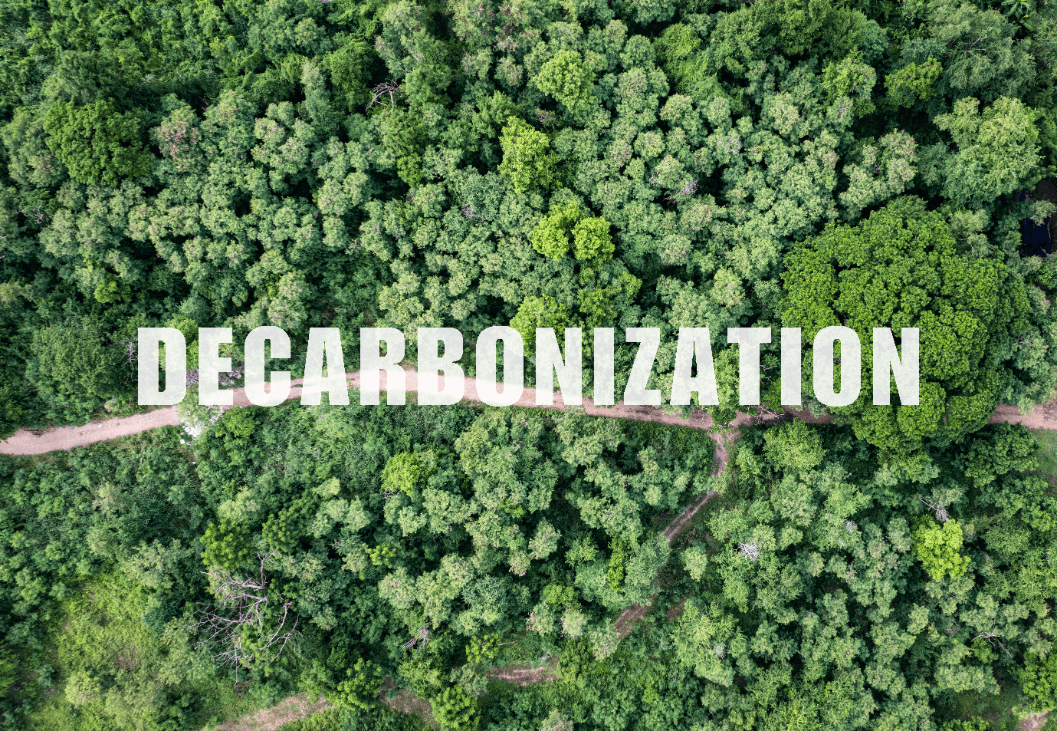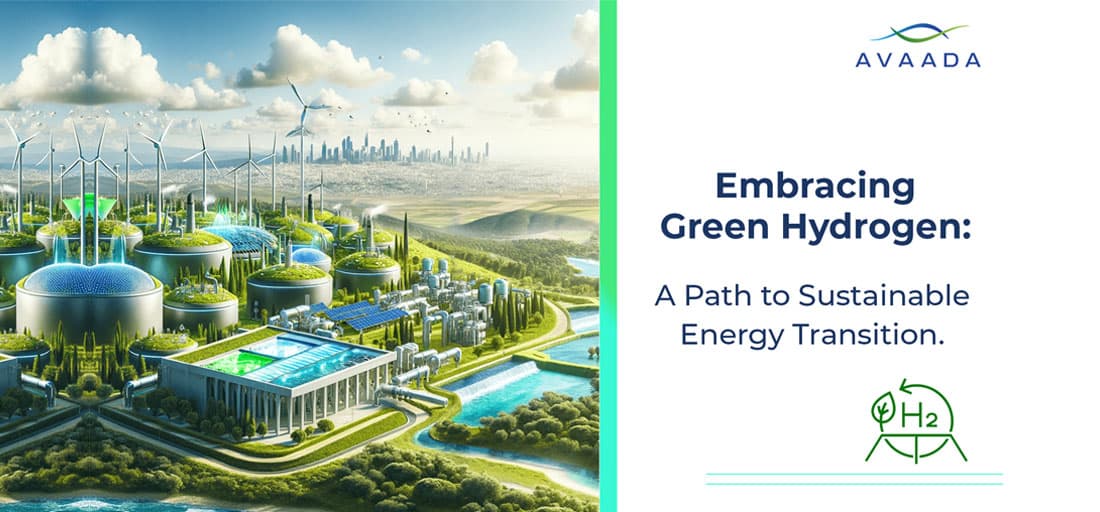Decarbonization is a term that has gained increasing prominence in discussions surrounding climate change and sustainability. It represents a crucial concept and a vital step towards combating the adverse effects of greenhouse gas emissions on our planet. In this article, we will explore what decarbonization is, what it means for our environment and society, and the various strategies employed to achieve it.
What is the urgency of decarbonization:
According to NASA, in 2023, the Earth’s CO2 concentration surpassed 424 ppm, an alarming level unseen in 3 million years. The IPCC’s urgent call to action demands limiting global temperatures to just 1.5°C above pre-industrial levels to avert catastrophic climate consequences. To achieve this, the world must strive for net-zero CO2 emissions by approximately 2050, as per the IPCC.
These stark figures emphasize the pressing need for decarbonization and prompt, collective efforts to combat climate change before it’s too late.
What is decarbonization and what does it mean?
Decarbonization is the process of reducing or eliminating carbon dioxide (CO2) emissions from various sources, particularly from activities that rely on the combustion of fossil fuels such as coal, oil, and natural gas. Carbon dioxide is one of the primary greenhouse gases responsible for trapping heat in the Earth’s atmosphere, leading to global warming and climate change. Decarbonization aims to mitigate the impacts of climate change by significantly decreasing the amount of CO2 released into the atmosphere.
To reach the global temperature goals established by the Paris Agreement and the UK government, it is imperative to reduce the quantity of carbon dioxide around the globe.
How does decarbonization work?
Decarbonization involves a strategic shift to prioritize low-carbon energy production while reducing reliance on fossil fuels. This change is clearly characterized by the intensive use of renewable energy sources such as wind energy, solar energy, and hydro energy. Additionally, reducing emissions-intensive practices extends to the comprehensive integration of electric vehicles and cleaner technologies. By reducing the carbon footprint of the energy and transport sectors, we can accelerate the achievement of net zero emissions targets in line with the government’s sustainability standards.
Why is decarbonization important?
In response to the ambitious goals of the 2015 Paris Agreement, many governments and business leaders have set targets and made commitments to reduce greenhouse gas emissions. But why is decarbonization important, and what significance does it hold in the context of limiting global warming? It is crucial to examine the pivotal role it plays in this endeavour.
Decarbonization has become a global necessity and priority for governments, businesses, and society at large as it plays a very important role in limiting global warming. Many companies in all sectors (e.g., energy, transport, consumer goods) have publicly declared their intention to become climate neutral by 2050.
Also Read: Advantages And Importance Of Renewable Energy
How do we decarbonise for a Zero-Carbon Future?
So, how do we decarbonize? To achieve a zero-carbon future, we must all work together to reduce global warming, save the environment, promote innovation, and ensure a sustainable planet for future generations. We must employ various strategies, such as:
1. Transition to Renewable Energy:
- According to IREA, Renewable energy capacity reached 2,799 GW globally, accounting for 34% of total electricity capacity.
- To decarbonize further, we must accelerate the shift to renewables, aiming for 100% clean energy grids. This involves continued growth in wind, solar, hydro, and geothermal energy.
2. Electrification:
- Electric vehicles (EVs) sales are expected to continue strongly through 2023. Over 2.3 million electric cars were sold in the first quarter, about 25% more than in the same period last year and is currently expected to see 14 million in sales by the end of 2023, representing a 35% year-on-year increase with new purchases accelerating in the second half of this year.
- To decarbonize transportation, widespread adoption of EVs and the expansion of electric public transit systems are essential.
3. Energy Efficiency:
- According to U.S. Department of Energy, energy-efficient buildings can reduce energy consumption by up to 50%, mitigating emissions.
- Emphasizing energy-efficient practices in industries, transportation, and construction is crucial for decarbonization.
4. Innovation and Research:
- Ongoing investment in research and innovation is critical. Breakthrough technologies and solutions will play a pivotal role in decarbonization.

Future Outlook of Decarbonization
The forecast for decarbonization in the future offers revolutionary transformation. We may look forward to a cleaner, healthier environment if countries make commitments to reducing carbon emissions. Innovation will be sparked by decarbonization, generating green industries and jobs. Fossil fuels will be outdated as renewable energy takes over.
Electrification of transportation will occur, and sustainable construction and agricultural practises will prosper. While resilient infrastructure will lessen the effects of climate change, cleaner air will enhance public health. Global cooperation is encouraged through decarbonization, paving the way for a sustainable future in which people and nature may coexist.
The journey may be difficult, but the reward is certain: a greener, safer, and more sustainable future.
Also Read: Harnessing Solar Energy: What is Solar Energy and How it’s Generated
Conclusion
So, to answer the question of “what is decarbonization and why it is important”, we must understand that decarbonization is not merely a buzzword; it’s a transformative movement that holds the key to our planet’s future. It’s a shift away from our carbon-heavy past, where fossil fuels reigned supreme, to a cleaner, greener, and more sustainable tomorrow.
Imagine a world where clean energy sources power our homes, where our vehicles produce zero emissions, and where the air we breathe is purer than ever. This vision is not a distant dream; it’s an achievable reality through the collective efforts of individuals, communities, industries, and governments committed to decarbonization.
Decarbonization isn’t just about reducing carbon emissions; it’s about reimagining our relationship with the environment. It’s about recognizing that our actions today shape the world our children and grandchildren will inherit.
By embracing decarbonization, we are taking a giant leap towards a future where nature thrives, the climate stabilizes, and humanity thrives in harmony with the planet.
Frequently Asked Questions About Decarbonization
1) What is the example of decarbonization?
Ans- Decarbonization is all about reducing the pollution that comes from burning things like oil, gas, and coal. Here are some simple ways we can do that:
- Clean Energy: We can use energy sources like the sun, wind, and water to make electricity instead of using things that create pollution.
- Electric Cars: Instead of cars that run on gasoline, we can use cars that run on electricity. They don’t make the dirty smoke that pollutes the air.
- Save Energy: We can also be smarter about how we use energy. For example, using better light bulbs and making our homes and buildings more energy efficient.
- Plant Trees: Planting trees and taking care of forests can help remove some of the pollution from the air.
- Recycle and Reuse: Instead of throwing things away, we can find new ways to use them or recycle them, which saves energy and reduces pollution.
So, decarbonization is like finding cleaner and better ways to do things to help our planet and make the air we breathe cleaner. It’s about using our resources wisely and being kind to the environment.
2) What are the five pillars of decarbonization?
Ans- The net-zero imperative centres around five essential actions that organizations must undertake as they embark on the journey towards net-zero emissions. To ensure credibility in their commitments, organizations must first collect and assess data that paints a clear and objective picture of their emissions footprint. This data should be readily comparable and kept up to date, necessitating a comprehensive technological framework that brings trust at every stage beyond simple reporting tools.
- Decarbonize with Strategic Foresight: Leaders face a challenging balancing act: recovering from COVID-19, embracing AI and automation, and excelling in competitive markets, all while pursuing net-zero emissions. Key steps involve aligning decarbonization with business strategy, grasping climate change nuances, setting reporting strategies, adjusting capital structures, linking executive pay to environmental performance, and highlighting concrete progress via emissions-reduction efforts.
- Operationalize Sustainable Behaviour: Beyond understanding carbon footprints, organizations should focus on the business case for sustainability initiatives. Decarbonization should be integrated into ongoing and proposed transformations, becoming an intrinsic part of organizational culture.
- Gain Regulatory Agility: Organizations must be prepared to report emissions reductions reliably to comply with tightening regulations and standards.
- Accelerate climate-focused partnerships: Collaborating with industry peers, NGOs, and suppliers to pursue ambitious emission reduction goals can help drive innovation and progress toward broader societal objectives.
- Build Trust and Prove Results: Transparency and high-fidelity data are crucial for substantiating progress made through decarbonization efforts. This helps organizations gain trust from customers, investors, lenders, and stakeholders. Technological advancements, such as cloud computing, machine learning, and blockchain, play a pivotal role in providing insights into emissions, especially as the urgency to limit global temperature rise to 1.5°C intensifies.
3) How does decarbonization help the environment?
Ans- Decarbonization reduces greenhouse gas emissions, which trap heat in the atmosphere and contribute to global warming. By shifting to cleaner energy sources and improving efficiency, decarbonization will helps mitigate climate change, safeguard ecosystems, and promote a healthier environment with cleaner air and water.








